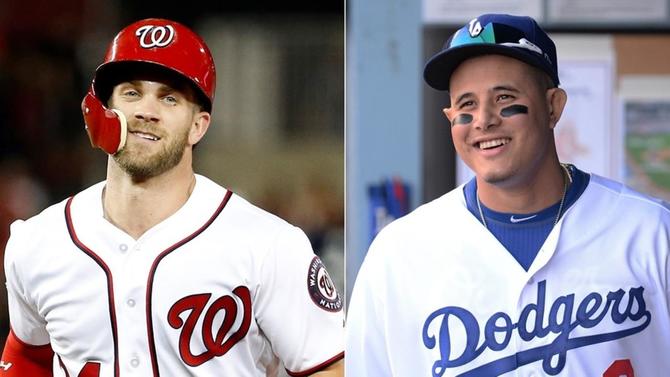By all accounts, the MLB Players Association is gearing up for a significant labor fight when the current collective bargaining agreement expires in 2021. And when you read reports like this, it is easy to understand why.
According to the Associated Press, the average MLB salary decreased from 2017-18. It's only the fourth time in the last half-century the average salary decreased from one year to the next. Here are the details:
The union said Friday its final average was $4,095,686, down $1,436 from $4,097,122 last year.
Since the union started keeping track in 1967, the only previous declines had been by $66 in 1987, when owners were found to have conspired to hold down salaries among free agents; a 4 percent decline in 1995 following a 7½-month strike that wiped out the World Series for the first time since 1904; and by 2.5 percent in 2004.
Fans won't have any sympathy for the millionaire baseball players who saw their average annual salary decline less than $1,500 in 2018. MLB and the 30 owners are banking on it. It's easy to be outraged over the salaries of millionaire baseball players when no one knows what the billionaire owners are making. Those are the numbers MLB won't ever let fans see.
MLB's revenues topped $10 billion for the first time in 2017 and that number went up again this year. Revenues continue increasing yet player salaries and team payrolls are trending down or at best holding steady. In fact, free agent spending is down again this offseason. Travis Sawchik of FiveThirtyEight ran the numbers on free agent spending through the first 50 days of the offseason recently. The results:
Offseason | Percent of Free Agents Signed | Dollars Spent on Free Agents |
2014-15 | 7.8% | $1.173 billion |
2015-16 | 9.2% | $1.401 billion |
2016-17 | 9.2% | $976.5 million |
2017-18 | 5.5% | $469.8 million |
2018-19 | 5.2% | $442.5 million |
Again, that is through the first 50 days of the offseason only. (This past Monday (Dec. 17), was the 50th day of the 2018-19 offseason.) Free agent spending during that time has been more or less cut in half within the last two years. It's down to nearly one-third of what it was three years ago. Teams simply are not spending on free agents like they once did.
There are many reasons why the average MLB salary dropped in 2018 and two big ones really stand out to me. One, the luxury tax is acting as a soft salary cap. The penalties are not that harsh -- the Red Sox exceeded the luxury tax threshold by $42.5 million in 2018 and their luxury tax bill was a mere $11.95 million, or the cost of a good setup man -- but owners can act like they are and declare the need to stay under the threshold.
And two, so many teams are rebuilding now. I count eight teams that will go into 2019 with no real chance at a postseason berth: the Mariners, Marlins, Orioles, Padres, Rangers, Royals, Tigers and, White Sox. The Blue Jays, Giants, and Diamondbacks could make it 11 teams depending what they do the rest of the winter. Yes, one or two of these teams could surprise and qualify for the postseason -- who saw the Athletics winning 97 games in 2018? -- but, on paper, these teams are rebuilding.

Rebuilding teams do not spend much money on free agents. They stick to low cost short-term deals to plug roster holes. That's pretty much it. Because revenues are less dependent on attendance than ever before -- teams make most of their money through broadcasting rights and advertising nowadays -- owners have discovered it can be more profitable to field a 70-win team than an 88-win team that has a shot at October, and many fans eat it up because rebuilds are cool. Everyone falls for the ostensible promise of a better future.
Not only do rebuilding teams not spend on free agents, but contending teams are now addressing their roster needs by trading for the players rebuilding teams are selling. The Yankees traded for James Paxton. The Mets traded for Robinson Cano and Edwin Diaz. The Cardinals traded for Paul Goldschmidt. So on and so forth. Why sign a big money free agent when you acquire a cheaper player in a trade? Yeah, you have to trade prospects, but so many of them are going to bust anyway.
League revenues are up and player salaries are down, and believe me, MLB's owners will not be passing those savings on to the fans anytime soon. Ticket prices and streaming subscription prices are still going up. The MLBPA dug itself into this hole by agreeing to so many spending restrictions in the last few CBAs. Now it's up to them to fix it to ensure the average salary doesn't continue to trend downward.


















